ISBER 2021 Virtual Symposium
In partnership with UHN Biospecimen Services
Pricing
On-site - Regular
*Registrations after September 30
|
$125 USD - member
$125 USD - UHN Staff*
$175 USD - non-member |
Student/Technician**
*Registrations after September 30
|
$75 USD - member
$75 USD - UHN Staff*
$150 USD - non-member |
*If you are a UHN staff member, please email info@isber.org from your work email address to request the discounted rate.
**If you are not a current ISBER student/technician member, please submit proof of your student status or a letter from your employer to info@isber.org to receive the student/technician rate.
Low and Middle Income Countries (LMICs):
Delegates in countries identified by the World Bank as Low and Lower-Middle Income are eligible for a 50% discount. Delegates in countries identified as Upper-Middle Income are eligible for a 25% discount. If you are eligible to receive a discount
please contact info@isber.org.
To confirm the income classification for your country, please click here.
Please note that if you are also a technician or student, you will receive only the LMIC discount or the technician/student discount, whichever is higher.
Registration
By registering for the meeting you will have access to all presentations, networking opportunities, abstract posters, workshops, and the exhibit hall.
Delegates will have the opportunity to watch sessions live or watch the session recordings on-demand at their leisure.
Register now**Registrations may take up to 24 hours to be processed and for you to gain access to the virtual meeting platform
IMPORTANT INFORMATION
All times are listed in American Eastern Time
Monday, October 4, 2021
ROUND TABLE DISCUSSIONS
8:15 - 8:55
|
How Community Engagement Can Shape Biobanking Governance
Facilitators: Carol Weil, National Institute of Health, USA, Helena Ellis, Biobanking Without Borders, USA
Community engagement is a vital component of biobank governance, the set of policies, infrastructure, and procedures collectively guiding the ethical and operational decisions of a biobank. Biobanks worldwide increasingly
recognize the importance of engaging community on key issues of governance. For example, participants consistently express their desire to receive clinically actionable health results after they’ve participated
in a research project, and to hear about study findings in terms they can easily understand.
Other governance issues that require the engagement of community include, but are not limited to: Informed consent process; Data protection; Retention and distribution of samples and data; Transparency, trust and
communication.
There isn’t a “one size fits all” approach to this challenge, as the nature of “community” and the resources available to conduct outreach will vary depending on the purpose and infrastructure of the biobank (population,
disease, institutional, networked, etc.).
At this roundtable, we want to hear how your community engagement efforts have informed biobank governance issues. We are especially interested in how biobanks around the world have engaged under-resourced communities
and have worked to ensure that vulnerable populations are able to benefit from the research the biobank makes possible.
What would you like to know about the Qualification in Biorepository Science ( QBRS ) Exam
Facilitator: Brent Schacter, CancerCare Manitoba, Canada
Well-trained biorepository staff are essential to assure high quality research specimens. ISBER and ASCP BOC ( American Society for Clinical Pathology Board of Certification) have developed an online qualification
examination through which individuals may earn a biorepository qualification credential, the Qualification in Biorepository Science ( QBRS).
In this roundtable we will provide participants with information and entertain questions about the background of the QBRS exam, the format and content of the exam, details of the application process, why the exam
is important for credentialing biobank professionals, and how applicants have received the exam.
Community Voices Needed! Be Part of Building a Bridge Between the ISBER Best Practices 4th and 5th Editions!
Facilitators: Clare Allocca, National Institute for Standards and Technology, USA,
Emma Snapes, BioConsulting, Ireland
ISBER has begun to revise the Best Practices, and we need your help. No matter the domain you work in, or your experience in biobanking, we believe you are well positioned to identify gaps / issues in the 4th Edition.
It would, of course, be best if you have already downloaded and read the 4th Edition (please!)! In order for the Best Practices 5th Edition to best serve the entire biobanking community, we want to hear your
experiences and needs. We would very much appreciate your input regarding any improvements you deem beneficial, whether through improving existing content or adding new sections.
|
WELCOME AND KEYNOTE
9:00 - 10:15
|
Welcome Address
Piper Mullins, ISBER President 2021-2022
Neil Fleshner, University Health Network
Daily Briefing
Heidi Wagner, Program Committee Chair
Keynote Lecture: Biorepositories as the Optimal Nexus of Key Innovation Vectors
Sam Salman, MiR Scientific LLC, USA
Biorepositories are positioned to transform their operations to remain relevant by accommodating key vectors of innovation in Biomolecular Profiling, Big Data, Precision Medicine, and Population & Health Equity.
As this happens, biorepositories offering, fair and ethical collections equalize the competitive landscape for researchers and startups by uniquely enabling cost-effective data generation needed for their progress
milestones. For multinationals, biorepositories can emerge as a keystone upon which major initiatives in machine learning using EMR data from hospital and population record systems and could be grounded in biological
evidence needed to interject new insights unknown at the time of chart entries.
|
HOT TOPICS 1
11:00 - 12:00
|
Biobanking and Artificial Intelligence (AI) from an International Perpsective
Zisis Kozlakidis, International Agency for Research on Cancer/World Health Organization, France
Artificial Intelligence (AI) is gradually changing medical practice. With recent progress in digitized data acquisition, machine learning and computing infrastructure, AI applications are expanding into areas that
were previously thought to be the exclusive domain of human experts. One such area is biobanking, which forms a natural extension for AI-driven activities, both because biobanking is a foundational activity
for downstream precision medical research, as well as because biobanking can increasingly accommodate high-throughput sample-, image- and data-handling operational models. The increasing AI-driven appetite for
higher volumes of data and images often necessitates the cross-border collaboration of biobanks; likely to develop to one of the major forces dictating the international biobanking collaboration in the near
future.
Implementing a Biorepository Quality Management System
Dominika Ryba, Ann & Robert H. Lurie Children’s Hospital of Chicago, USA
Biospecimen collection is fundamental to both diagnostics and research studies. Results of analyses of biological samples can be influenced by conditions to which samples have been exposed during sampling, processing,
and storage. Investigators need to ensure that samples used for research are of good quality. Having a Quality Management System (QMS) ensures that high-quality samples are stored and could later be used for
biomedical research especially in the pediatric population. That is why implementing and maintaining a QMS is important for a biorepository.
|
HOT TOPICS 2
13:15 - 13:45
|
Socio-Cultural Considerations for Biobanking in South Africa
Keymanthri Moodley, Stellenbosch University, South Africa
Biobanks are precariously situated at the intersection of science, genetics, genomics, society, ethics, the law and politics. This multi-disciplinarity has given rise to a new discourse in health research involving
diverse stakeholders. Each stakeholder is embedded in a unique context and articulates his/her biobanking activities differently. To researchers, biobanks carry enormous transformative potential in terms of
advancing scientific discovery and knowledge. However, in the context of power asymmetries in Africa and a distrust of science born out of historical exploitation, researchers must balance the scientific imperative
of collecting, storing and sharing high quality biological samples with obligations to donors/participants, communities, international collaborators, regulatory and ethics authorities. A host of ethical considerations
add complexity to the biobanking process: informed consent, confidentiality, ownership, benefit-sharing and commercialisation. These challenges must be viewed with a socio-cultural lens in South African communities.
|
ABSTRACT POSTERS
13:45 - 14:45
|
Join us in the poster hall to peruse the latest research in biobanking and connect directly with the poster presenters. All poster presenters will be available within their poster booth to chat with delegates.
|
PANEL DISCUSSION
14:45 - 16:00
|
How Biobanking Can Help Bridge Health Disparities
Biobanks have been crucial in the development of novel research by providing a central location for access to high-quality samples and data. How do biobanks ensure their samples and data are truly representative
of diverse populations and ethnicities? Can biobanking reduce health disparities adversely affecting groups based on racial or ethnic origins, or those experiencing social and/or economic obstacles?
By creating pathways for biobanks to engage and collect valuable data and samples from underrepresented populations, biorepositories can help drive new research and targeted therapies centred towards addressing
health challenges faced by underserved populations.
Join our experts in discussing the challenges, successes and lessons learned in reconciling health disparities.
Moderated by: Karen Kippen, Henry Ford Medical Group, USA
Panelists:
- Arjun Manrai, Harvard Medical School, USA
- Helen Morrin, University of Otago Christchurch, New Zealand
- Dave Chesla, Spectrum Health, USA
|
Tuesday, October 5, 2021
ROUND TABLE DISCUSSIONS
8:15 - 8:55
|
Putting ISO 20387 into Context: A World of Tool and Resource Possibilities
Facilitators: Clare Allocca, National Institute for Standards and Technology, USA, Emma Snapes, BioConsulting, Ireland
Now that ISO 20387 General requirements for biobanking, the world's first international biobanking standard, has arrived and is in use, how is it positioned within the world of tools and resources? With so many
tools at my fingertips, how do I assemble my personal biobank toolbox? You might begin by assessing your biobank's mission, objectives, and priorities. Then ask yourself: what tool would I wish for to address
my greatest challenge(s)? This RoundTable discussion will explore some possibilities, particularly those that apply to ISO 20387. We invite you to share your experiences and desires in tool development and application.
Consenting in the Digital Era
Facilitators: Paul Macpherson, Phyllis Billia, University Health Network, Canada
Digitalizing the consent process is a topic that many biobanks and institutions are looking to explore, including programs at the University Health Network (UHN). In this roundtable, we will provide the opportunity
for delagates to discuss some of the challenges faced during the consent process, and how digitlization can help create a more dynamic and efficient way of reaching potential participants. Join our experts in
discussing the challenges, successes and tools used to bring the consent process to the digital era.
|
KEYNOTE 2
9:00 - 10:15
|
What is the fiduciary duty of biobanks to return research results back to patients?
Biobanks are crucial resources for the conduct of biomedical research and advancing science. Through the years, biobanks have faced ethical, legal, and social dilemmas that arise in the context of the return of
results and incidental findings to patients and their families. Challenges include determining the scope of findings to return, and facilitating the resources and expertise needed to provide meaningful disclosure,
including genetic counseling as appropriate. Ethical questions arise, such as: Do biobanks have a responsibility to protect participants from poorly validated information? What is the duty to disclose variants
of unknown significance?
Through a series of cases, based on real-life occurrences, a diverse group of world-renowned clinicians and biobank experts will explore these issues and consider the fiduciary duty, ethical responsibility and challenges
surrounding the return of research results to patients.
Moderated by: Carol Weil, National Institute of Health, USA
Participants:
- Neil Fleshner, Princess Margaret Cancer Centre - University Health Network, Canada
- Yvonne Bombard, Unity Health Toronto, Canada
- Birendra Kumar Yadav, National Liver Disease Biobank, India
|
TECHNOLOGY SHOWCASE
10:45 - 11:45
|
Objective Quality Assessment of Nucleic Acid Samples: Considerations and Solutions for Biobank Laboratories
Ashok Manickaraj, Agilent Technlogies
Expand the Future Use of Biobank Samples Using NMR-Based Clinical Research Solutions
Roland Leiminger, Bruker BioSpin
Discovering Samples Across UHN’s Biobanks Using TECHNA's Biospecimen Portal
Sharon Narine, Kevin Wang, Techna Institute
Anatomy of a Cryogenic Freezer, Alarm Preparation and Response
Lelie Gallagher, Core Cryolab
|
HOT TOPICS 3
11:45 - 12:15
|
Adopting and Adapting to the New e-Health World: Value Shift for Clinical Research and Biobanking Practices
Alejandro Berlin, Princess Margaret Cancer Centre - University Health Network, Canada
We will review how e-Health is becoming part of the fabric of routine care, generating a pressing need for clinical research and biobanking to evolve.Through examples and ideas this talk should stimulate thinking,
discussion and hopefully an 'out of the box' mindset to move the field forward.
|
WORKSHOP
13:00 - 15:30
|
Data Sharing: From Big Initiatives to Local Impact
The need for global sharing of genomic and health-related data is becoming imperative as the fight for improving the health of individuals, communities, and populations gather ground. It has increasingly become
clear that access to widely dispersed data is the need of the hour for carrying out research. Biobanks are a key to the biomedical research infrastructure and are well poised to lend support.
In this workshop we will explore how the worldwide data deluge is leading to major developments in national and international data infrastructure of biobanks. We will then dive into with the associated governance
principles and then consider how these impact biobanking operations on a day-to-day basis. Participants will engage in discussions with their colleagues and experts in the field to learn how biobanks are fundamental
contributors for data sharing and how to maximize contributions to the effective and efficient applications of biospecimen-derived data to clinical settings, patient management and public engagement.
Chairs:
- Daniel Catchpoole, Kids Research, The Children's Hospital at Westmead, Australia
- Shonali Paul, Cloudlims.com, India
Presenters:
- Francesco Florindi, Thermo Fisher Scientific, Belgium
- Asif Gill, University of Technology Sydney, Australia
- Rita Lawlor, ARC - NET Centre for Applied Research on Cancer, Italy
- Charles Wang, Shanghai Xinhua Hospital, Shanghai Jiao Tong University School of Medicine, China
|
View the Sponsorship Brochure
Submit Your Sponsor/Exhibit Application Now
Agilent is a leader in life sciences, diagnostics and applied chemical markets. The company provides laboratories worldwide with instruments, services, consumables, applications and expertise, enabling customers to
gain the insights they seek. Agilent’s expertise and trusted collaboration give them the highest confidence in our solutions.
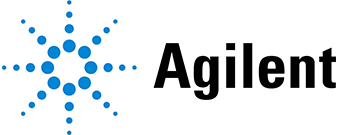
Visit Agilent Technologies' Website
Bruker is enabling scientists to make breakthrough discoveries and develop new applications that improve the quality of human life. Bruker’s high-performance scientific instruments and high-value analytical and diagnostic
solutions enable scientists to explore life and materials at molecular, cellular and microscopic levels. In close cooperation with our customers, Bruker is enabling innovation, improved productivity and customer
success in life science molecular research, in applied and pharma applications, in microscopy and nanoanalysis, and in industrial applications, as well as in cell biology, preclinical imaging, clinical phenomics
and proteomics research and clinical microbiology. Today, worldwide more than 6,900 employees are working on this permanent challenge at over 90 locations on all continents. Bruker continues to build upon its extensive
range of products and solutions, its broad base of installed systems and a strong reputation among its customers. Being one of the world's leading analytical instrumentation companies, Bruker is strongly committed
to further fully meet its customers’ needs as well as to continue to develop state-of-the-art technologies and innovative solutions for today's analytical questions.
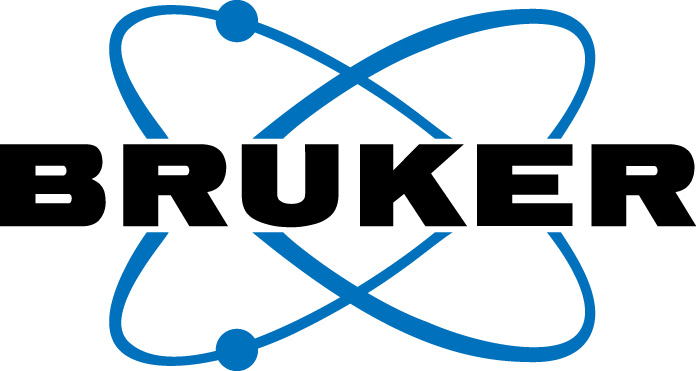
Visit Bruker BioSpin GmbH's Website
BSI Systems offers a collection of products that provide an end-to-end set of features for managing specimen collections, ranging in size from small biobanks to large biorepository networks. The Biological Specimen
Inventory (BSI) system is a user-friendly, powerful, and secure cloud-based LIMS software. This robust system can be customized to meet your organization’s needs for efficient and complete specimen lifecycle tracking.
BioShare is a platform which provides a central location for researchers to search available collections and submit requests for specimens and data of interest. BioShare also provides a comprehensive and coordinated
site to track the request and approval processes. The Specimen Resource Locator Advantage (SRL) provides a secure, centralized point of access for researchers to search and locate your specimen collections.
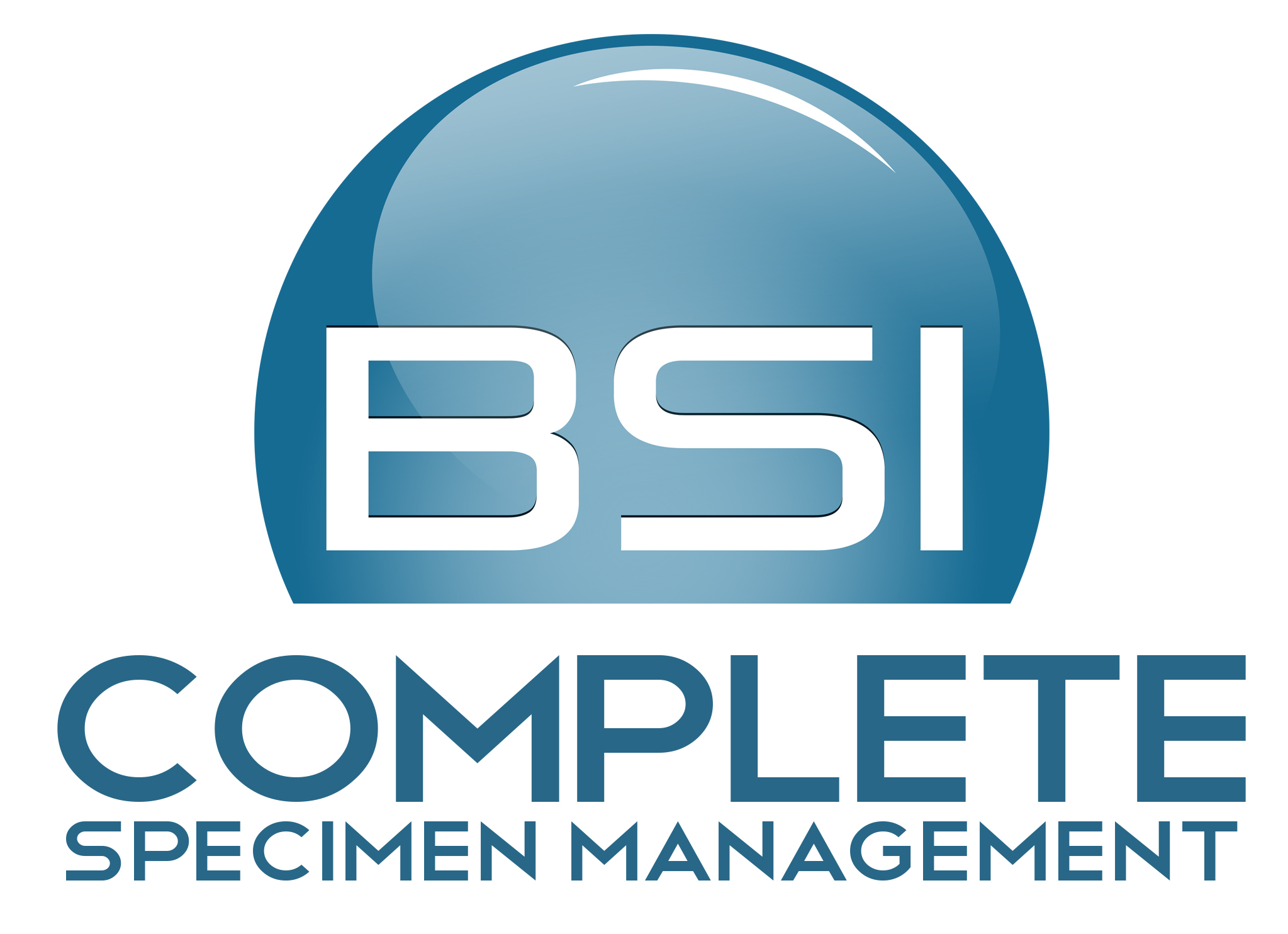
Visit BSI Systems' Website
Core Cryolab Inc. specializes in providing cryogenic services to the medical and scientific communities including: storage, shipping, biorepository design, construction, and cryogenic equipment sales. Since 2005, they
have provided world-class service to some of Canada’s most prestigious principal investigators, research institutes, clinical studies and biopharmaceutical communities. Their experienced staff, redundant security
systems and robust quality system ensure that samples are safely stored and maintained. Core Cryolab’s facilities are located in Toronto General Hospital and near Pearson International Airport in Mississauga. Both
their sites are managed and operated in compliance with regulatory and accreditation bodies. Core is the only distributor of cryogenic equipment in Canada that is also an end-user. Operating their biorepository
and running an international cryogenic shipping business has given their team a superior understanding of the operational needs of their clients. Over the last decade, they have helped design and build numerous
biorepositories including some of the largest in Canada. Core Cryo-Shipping began as a service to storage clients and over the last decade has grown into the biggest dedicated cryogenic shipping business in Canada.
Their global reach in Cryo-Shipping services are utilized by the IVF community and serve as a key component in cold chain management within both the pharmaceutical and medical research industries. Their mission
is to raise the bar in terms of protecting the long-term value of the samples stored in cryogenic facilities throughout Canada and beyond. They work to accomplish this through their comprehensive range of cryogenic
related products and services for biorepositories with personalized service from their experienced staff.

Visit Core Cryolab Inc.'s Website
Since 2007, Hamilton Storage, an affiliate entity of Hamilton Company, has been a global leader in the design and manufacturing of automated storage systems for biological and compound samples. By safeguarding the integrity
of even the most precious samples, our solutions and expert knowledge empower researchers to reach new heights of laboratory efficiency while remaining focused on life science research. Our sample storage solutions,
benchtop devices, and consumables are designed for sample integrity, flexibility, and reliability for life science applications.

Visit Hamilton Storage's Website
MODUL-BIO specializes in the conception, development and integration of informatics solutions for biological sample management with: 1) laboratory information management systems (LIMS), MBioLIMS BioBanking, 2) implementation
of barcode systems, MBioLABEL, 3) collaborative tools for sharing biological sample collections, eMBioBANK. We deploy solutions dedicated to biobanking, for biological resource centres, cohort projects, diagnostic
laboratories, biotechnology and cosmetics companies, etc. With our combined expertise in IT and biology, we have over 300 clients, laboratories or research centres, hospitals, academic or industrial.

Visit Modul-Bio's Website
The Techna Institute is designed to shorten the time interval from technology discovery and development to application for the benefit of patients and the health care system. It will also stimulate and facilitate the
innovation cycle through a continuum of clinically driven innovation, technology and process development, and translational research. Techna strives to develop and bring technology into clinical use. While technology
has existed as an essential platform for UHN research, Techna represents a paradigm shift towards demand-driven activities, and the organizational alignment of the needs of the research hospital and the research
enterprise. We actively engage academics, clinicians, industry and government as a network of partners in the development and deployment of novel health technologies. Our current fronts represent the strengths of
the institute and the technology foci we envision to have the greatest impact on human health in the near future.

Visit Techna Institute's Website

Alejandro Berlin, MD, MSc, Princess Margaret Cancer Centre - University Health Network, Ontario, Canada
Dr. Alejandro (Ale) Berlin is a staff clinician-scientist and radiation oncologist at The Princess Margaret
(PM). His practice focuses in genitourinary oncology, and research in translational oncology (e.g., genomics, molecular imaging and MRI-guided therapeutics). He is the medical director of the PM Smart Cancer Care and Data Science
Programs, with overarching missions of optimizing the delivery of value-based healthcare and cancer research for improving patients’ experiences and outcomes, by building digital solutions and innovative data science methods.

Yvonne Bombard, PhD, Unity Health Toronto, Ontario, Canada
Dr. Bombard is a genomics health services researcher & Scientist at Li Ka Shing Knowledge Institute — St. Michael’s Hospital. She is an Associate
Professor at the University of Toronto — Institute of Health Policy Management and Evaluation. Her research assesses the adoption of genomic technologies; she develops digital tools for precision medicine, and conducts public
& patient engagement to advance health technology assessment & service delivery. She is active in international policy advisory committees, & led ASHG’s policy on the duty to recontact & return results to research
participants.

Daniel Catchpoole, PhD, Kids Research, The Children's Hospital at Westmead, Westmead, Australia
Dr. Daniel Catchpoole has 20 years fulltime laboratory research experience into the molecular basis of paediatric
malignancies and has extensive experience with the analysis of gene expression as well as cellular and molecular applications associated with research into acute lymphoblastic leukaemia. Since completing his undergraduate degree
in 1987, his scientific achievements and publications have centred on paediatric malignancy, specifically acute lymphoblastic leukaemia and neuroblastoma, as well as cancer prone syndromes in children, namely Beckwith Wiedemann
syndrome.

Dave Chesla, MHA, Spectrum Health, Grand Rapids, Michigan, United States
Mr. Dave Chesla is the Sr. Director of Research and Development at Spectrum Health, Grand Rapids, Michigan and a adjunct assistant professor
in the department of obstetrics, gynecology and reproductive biology, College of Human Medicine, Michigan State University. His current research interests are Precision Medicine, Proteomics, and Perinatal Epidemiology. He is
the PI of the Spectrum Health Accelerator of Research Excellence biobank, and the site PI for the NIH's All of Us Program. These programs engage over 1,000 patients per week with novel strategies that increase research access
to all.

Neil Fleshner, MD, MPH, Princess Margaret Cancer Centre - University Health Network, Ontario, Canada
Dr. Neil Fleshner is a clinician-scientist and uro-oncologist within the Division of Urology at the University
Health Network. He is the Founder and Director of the McCain GU BioBank, the recipient of the inaugural Princess Margaret Hospital Foundation Love Chair in Prostate Cancer Prevention and is the Martin Barkin Chair in Urological
Research in conjunction with the appointment of Chair for the Division of Urology at the University of Toronto. His current research priorities include translational and clinical research focused on biomarker development and
based on biospecimens.

Francesco Florindi, BBMRI-ERIC, Austria
Mr. Francesco Florindi obtained a cum laude Master’s degree in International Relations and Diplomacy from the University of Trieste-Gorizia with a thesis on EU enlargement.
In 2011, he started working for regional representatives, NGOs, and the European Commission’s Joint Research Centre (JRC) in Brussels. He went on to join the European Cancer Patient Coalition as Public Affairs Coordinator and
became Head of EU Affairs in 2016. His experience working in healthcare dates back to 2013, when he joined the ECCO and SIOPE Public Affairs team. Francesco has worked on a number of key European issues such as data protection,
health technology assessment, access to quality healthcare, eHealth/mHealth and patient advocacy. These experiences made him understand how patients and healthcare professionals can fruitfully collaborate at European and international
level in order to reach common goals. Francesco is a fellow Young Gasteiner and a Member of the European Health Parliament. He is Italian and speaks English and French.

Asif Gill, PhD, MSc, University of Technology Sydney, Sydney, Australia
Dr. Asif Gill is a result-oriented academic and practitioner with extensive 20+ years experience in IT in various sectors including banking,
consulting, education, finance, government, nonprofit, software and telecommunication. He is A/Professor & Director of the DigiSAS Lab at the UTS School of Computer Science. He has PhD Computing, MSc Computing and Master
of Business. He is also ACS Certified Professional and Senior Member.
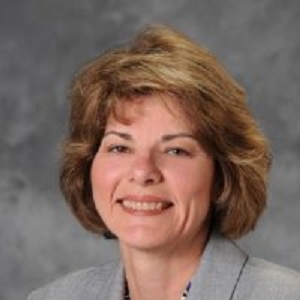
Karen Kippen, MSA, MT (ASCP), Henry Ford Health System, United States
Ms. Karen Kippen is the Executive Director of the Patient-Engaged Research Center (PERC). She is a Senior National Baldrige Examiner with
a focus on strategic planning and customer engagement. Her leadership role in PERC includes oversight of the Center’s resources and activities and outreach to stakeholders and researchers both inside and outside of Henry Ford
Health System.

Zisis Kozlakidis, PhD, MBA, FLS, IARC/WHO
Dr. Zisis Kozlakidis is the Head of Laboratory Services and Biobanking at the International Agency for Research on Cancer (IARC/WHO). He is responsible for one of the
largest and most varied international collections of clinical samples in the world, focusing on gene–environment interactions and disease-based collections. This WHO infrastructure supports multinational efforts in making treatments
possible and delivering those to resource-restricted settings. He has significant expertise in the field of biobanking and has served as President of ISBER.

Rita Lawlor, PhD ARC-Net Cancer Research Centre, University of Verona , Italy
Dr. Rita T. Lawlor is a Computer Science graduate of Trinity College Dublin with a doctorate in Oncological Pathology .She is co-founder
of the ARC-Net (www.arc-net.it) applied cancer research centre and head of the ARC-Net biobank coordinating research activities. She is an IAPP Fellow of Information Privacy. She is a member of the management team of ICGC-ARGO
to accelerate research in genomic oncology. She is chair of the ISBER GDPR Task Force. Her research interests are in molecular characterization of biobanked samples in the application of individualized medicine.

Arjun Manrai, PhD, Harvard Medical School / Boston Children's Hospital, Massachusetts, United States
Dr. Arjun Manrai is an Assistant Professor in the Computational Health Informatics Program at Boston Children’s
Hospital and the Department of Biomedical Informatics at Harvard Medical School. He directs a lab of machine learning scientists, clinicians, and biomedical data scientists working to improve medical decision making by developing
computational approaches that incorporate rich and deep representations of clinical state and an individual's identity into care. He received an A.B. in Physics Harvard and earned his Ph.D. in Bioinformatics and Integrative
Genomics from Harvard-MIT.

Keymanthri Moodley, PhD, Stellenbosch University,Rondebosch, South Africa
Dr. Keymanthri Moodley is a Distinguished Professor in the Department of Medicine and Director of the Centre for Medical Ethics and Law,
Faculty of Health Sciences, Stellenbosch University. In 2017, she was appointed as Adjunct Professor in the Department of Social Medicine, University of North Carolina-Chapel Hill, USA. She is a specialist family physician,
bioethicist and has served as a Principal Investigator on clinical trials. The Centre was re-designated as a Collaborating Centre in Bioethics in 2019 by the WHO, one of twelve in the world and the first on the African continent.

Helen Morrin, University of Otago Christchurch, Christchurch, New Zealand
Ms. Helen Morrin has been involved in biobanking for over 20 years developing a cancer biorepository in New Zealand, at the University
of Otago Christchurch. Her special interest is in ethics, legislation, and social issues that meet the needs of all stakeholders, particularly those of Maori, the indigenous people of New Zealand. She is a member of a Human
Research Ethics Committee and current chair of the ISBER Science Policy Advisory Committee.
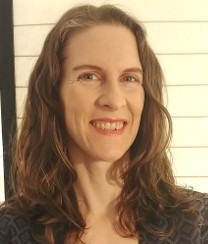
Piper Mullins, MSIS, Smithsonian Institution, Washington D.C., United States
Ms. Piper Mullins is the Program Manager for the Pan-Smithsonian Cryo-Initiative, where she manages the development of the Smithsonian
biorepository program to integrate, standardize, and manage information systems and frozen collections (i.e. biobanks). This network of frozen collections includes a wide variety of non-human samples, from zoo animals to museum
tissues to environmental soil samples and plant seeds. She is also responsible for creating and maintaining a resource allocation program for individual departments to gain access to institutional biobank management resources,
such as purchasing freezers and hiring technicians. In addition, she heads collaborative projects for biobank guideline development and implementation across the Institution to increase efficiency and standards. As part of
her role, she is a liaison to the United States’ Government Nagoya Protocol group, where she helps to monitor developments on policies regarding access and benefit sharing. She also serves as ISBER President, 2021-2022.

Shonali Paul, MBA, CloudLIMS, Indore, India
Ms. Shonali Paul has a rich experience of working in diverse industries including IT, heavy engineering and retail. In a career spanning over seventeen years, she
has built a long and impressive track record of success in high technology software sales, marketing and professional services, developing operational strategies and directing new business initiatives from conception through
execution. She has helped build the offshore development center in India and is the key driver of the development, operations and product teams. She has been the key person responsible for two corporate acquisitions. She is
the chair of Member Relations Committee at ISBER. She holds a Bachelor of Engineering degree from SGSITS, Indore and an MBA from Xavier Institute of Management, Bhubaneswar.

Dominika Ryba, MBS, Ann & Robert H. Lurie Children’s Hospital of Chicago, Chicago, Illinois, United States
Ms. Dominka Ryba is currently a Biorepository staff at Ann & Robert H. Lurie Children's Hospital
of Chicago. She oversees clinical sample processing, preservation, and storage. She is also involved in project management and quality assurance. Last year she helped facilitate and prepare the biobank for College of American
Pathologists (CAP) accreditation with the rest of the biorepository staff.

Sam Salman, miR Scientific LLC, New York, United States
Mr. Sam Salman is a physics scholar who has dedicated his career to develop and manage complex systems innovations. He is regarded as a visionary driven
to affect global impact. He is an accomplished world class leader focused on science and its commercial applications for resolving key challenges facing humanity on a global scale. He is a champion of public/private partnerships
and a member of the Board of Trustees and Board of Selectors of the Multiplying Good.

Charles Wang, MD, PhD, Shanghai Xinhua Hospital, Affiliated to Shanghai Jiao Tong University School of Medicine, Shanghai, China
Dr. Charles Wang has interest to study molecular mechanisms of neuroendocrine developmentally
disrupted by EDCs. Charles earned his MD in China and PhD from MD Anderson Cancer Center. Charles has pursued his career at Baylor College of Medicine, Pfizer and Wisconsin College of Medicine. Charles was recruited by his
skills and experience in biobanking. He earned his leading role in information management and data sharing of biobank in China. Charles initiated WG on Data Usability & Accessibility Regimes under BBCMBA of China. Charles
led to complete the project on data harmonization for sharing.
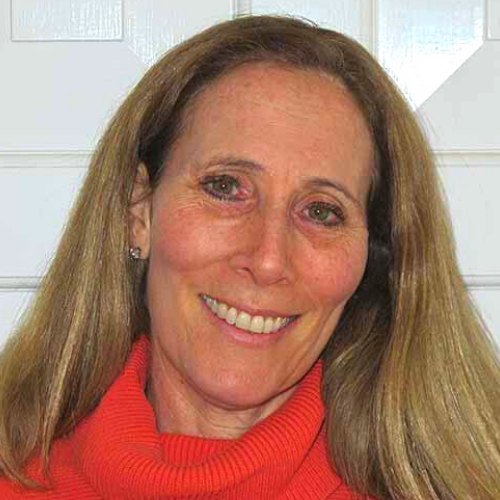
Carol Weil, JD, National Cancer Institute, Maryland, United States
Ms. Carol Weil is program director for ethical and regulatory affairs at the National Cancer Institute (NCI), a position she has held for the
past 11 years. She obtained her law degree from University of California at Berkeley, followed a fellowship in medical ethics at the University of California, San Francisco Medical School. Prior to joining the NCI, she worked
for 10 years at the US Office for Human Research Protections. Her primary interests lie at the interface of research protections and ethics, and include issues of consent, data protection, return of results, and community engagement.
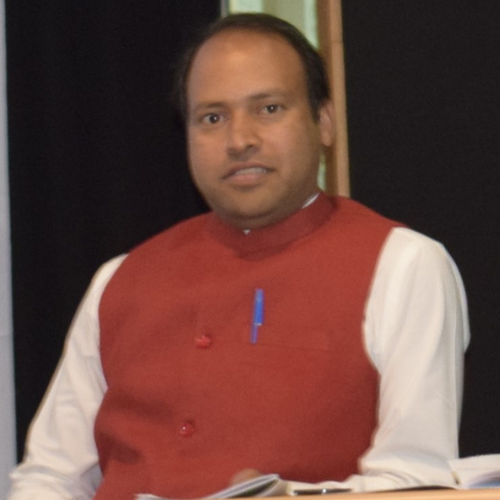
Birendra Kumar Yadav, PhD, National Liver Disease Biobank, Institute of Liver and Biliary Sciences, New Delhi, India
Dr. Birendra Kumar Yadav has a rich experience of 15 years in the area of biobanking, cancer,
stem cell, cell biology, and hematology. He is manager of India’s First Liver Biobank know as National Liver Disease Biobank (NLDB), ILBS, New Delhi, India. He has also responsibility of ILBS COVID Biorepository. He is associated
with ISBER as Regional Ambassador of Indo specific region and Biobank India Foundation (BBIF) for the growth of biobank in this region. He earned his doctorate in medicine at KNU, Republic of Korea. He has authored 32 publications
so far.
More Speaker Biographies Coming Soon!
|